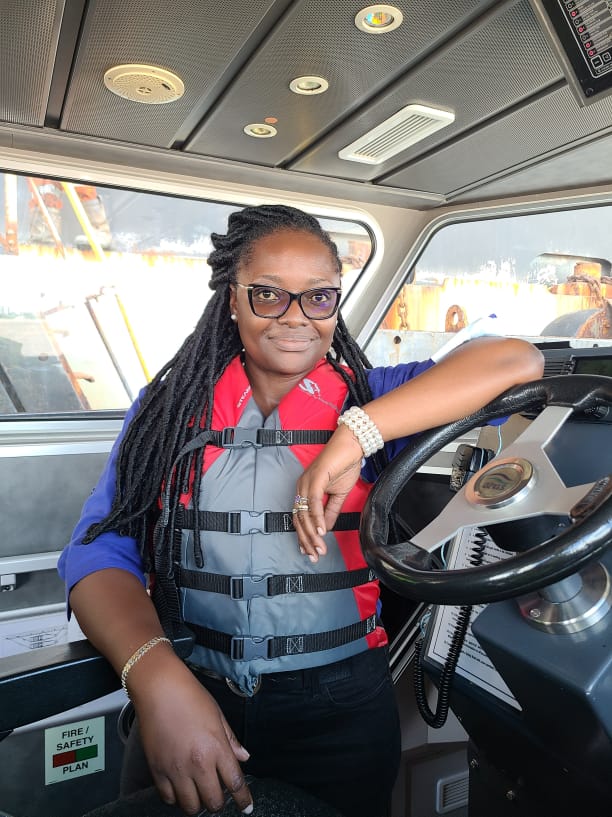In celebration of the International Day for Women in Maritime, we highlight Thandi McAllister, Guyana’s IMO Representative and MARAD Legal Director, whose work shapes maritime law and leadership.
Thandi McAllister once planned a career in criminal law. But a second-year course in international law changed everything. “I loved everything about that field of practice until my introduction to International Law and the Law of the Sea,” she said. “The latter fascinated me.”
She credits her early reading of the United Nations Convention on the Law of the Sea (UNCLOS) and Sir Shridath Ramphal’s Triumph for UNCLOS for her pivot. That book, which chronicled the Guyana-Suriname maritime dispute, sparked a lasting interest. Her research led her to the International Maritime Law Institute (IMLI), which became central to her path.
Today, McAllister serves as Guyana’s Permanent Representative to the International Maritime Organization (IMO) and as Director of Legal Services at the Maritime Administration Department. She works across national and international levels, shaping maritime governance. One of her significant contributions was during the preparatory phase of the Carib-SMART Project.
“This initiative aims to deliver a sustainable maritime transport system,” she explained. Its goals include energy efficiency, pollution reduction, and regional resource conservation. “The long-term goal is for us to be able to transport goods, across the region, in a safe, secure, reliable and efficient manner.”
McAllister is also part of global conversations on shipping and climate change. She recently completed advanced training on greenhouse gas (GHG) pricing for the sector. “Addressing climate change is high on the agenda of the global maritime community,” she said. Countries like Guyana face the dual challenge of promoting growth while dealing with climate vulnerabilities. “SIDs and LDCs… suffer disproportionately from its effects.”
At its 83rd session in April 2025, the IMO’s Marine Environment Protection Committee approved a draft framework for net-zero emissions. It includes a global fuel standard and economic measures. “Implementation of global standards is usually very challenging” for small states, she said. Guyana is aligning its strategy with the Low Carbon Development Strategy 2030 and the Maritime Economy Plan.
As a member of IMLI’s Governing Board, McAllister supports legislative development. “IMLI provides training for suitably qualified personnel in maritime law,” she explained. Its mission is to help developing states translate international maritime instruments into national law. She hopes to see more Caribbean participation. “I aim to see an increase in regional representation on IMLI’s programmes.”
McAllister has also lectured and facilitated workshops, drawing on her own experience. “I love imparting knowledge and sharing my experiences to new entrants to this exciting sector.” She finds that grounding theory in lived examples helps learners. “Most students viewed this area of law as a mountain to climb. (It is. LOL) Navigating the complexities is easier when you’re able to connect the theory to the real experiences.”
Her rise in a male-dominated field has come with its own lessons. “I had a realisation, early in this journey, that to be impactful requires learning: fast and wide.” She noted that her insights were sometimes challenged more frequently. “I’ve had to evidence my claims or opinions simply because I was either the only woman in the room, or the only woman who spoke.” Even so, she points out, “My greatest support on this journey came from males who were already established in the field.”
For young women eyeing careers in maritime law, McAllister has clear advice. “Safe navigation requires planning,” she said. Staying updated and networking are essential. She encourages women to join professional organisations like Women in Maritime Association-Caribbean (WiMAC). “Be open to learning and maintaining currency of your knowledge,” she advised. “When the seas rage and the waves mount, hold fast.”



